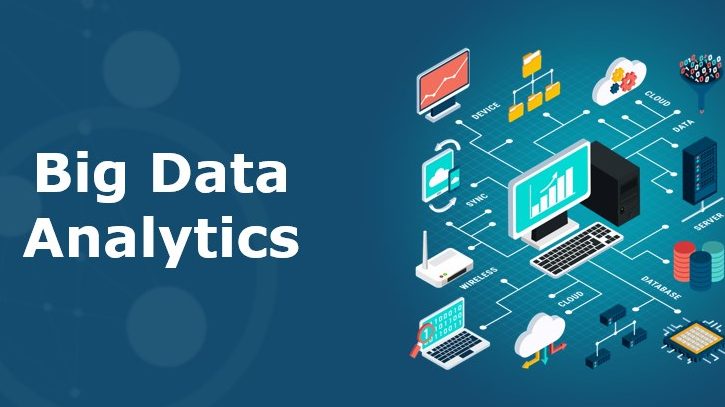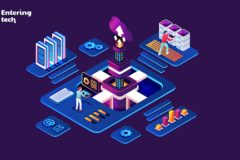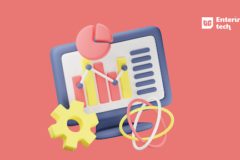
Big data analytics has emerged as a critical field in recent years, owing to the explosion of data and the need to make sense of it. Companies worldwide are investing heavily in big data analytics to uncover insights, optimize operations, and create new business opportunities. However, many people are still unaware of what big data analytics entails, and the intricacies of a career in this field. This article aims to break down the intricacies of a career in big data analytics and provide an overview of the skills and qualifications required.
What is big data analytics
Big data analytics involves using various analytical techniques and tools to process large volumes of structured and unstructured data, to uncover hidden patterns, correlations, and insights. This data can be derived from a variety of sources, including social media, e-commerce websites, healthcare databases, and many more. Big data analytics is not just about analysing data, but also about developing predictive models, creating visualisations, and communicating insights to stakeholders.
Skills required to thrive in big data analytics
A career in this field requires a range of technical and soft skills. Here are some of the critical skills required:
Data Analytics
Big data involves working with vast amounts of data. Therefore, a deep understanding of data analytics tools and techniques is essential. This includes proficiency in programming languages such as Python, R, SQL, and Java, as well as familiarity with data visualisation tools such as Tableau, Power BI, and QlikView.
Statistical Analysis
The ability to perform statistical analysis is crucial in big data analytics. Understanding statistical concepts such as hypothesis testing, regression analysis, and clustering is essential for uncovering meaningful insights from data.
Machine Learning
Machine learning is a subset of artificial intelligence that involves developing algorithms that can learn from data and make predictions. A deep understanding of machine learning concepts such as decision trees, neural networks, and deep learning is essential for creating predictive models.
Data Mining
Data mining involves identifying patterns and relationships in large datasets. A good understanding of data mining techniques such as clustering, association rule mining, and outlier detection is necessary for extracting insights from complex data.
Business Acumen
A career in big data also requires a good understanding of business concepts and practices. This includes the ability to identify business opportunities and formulate strategies based on data insights.
Qualifications you may need to get started in Big data analytics
A career in big data analytics requires a combination of technical and business skills, as well as relevant qualifications. Here are some of the qualifications that can help kickstart a career in the field:
Bachelor’s degree
A Bachelor’s degree in a relevant field such as computer science, mathematics, statistics, or data science is an excellent starting point for a career in big data.
Master’s degree
A Master’s degree in a related field can help individuals gain a deeper understanding of big data concepts and techniques. Popular options include Master’s degrees in Data Science, Analytics, or Business Analytics.
Certifications
There are several certifications available that can help individuals gain credibility in the field of BDA. Popular certifications include the Certified Analytics Professional (CAP), Microsoft Certified: Azure Data Scientist Associate, and Cloudera Certified Data Analyst.
Career paths in BDA
The career path in big data can vary depending on the individual’s skills, qualifications, and interests. Here are some of the common career paths in big data analytics:
Data Analyst
A data analyst typically works with large datasets and uses analytical tools and techniques to extract insights. They are responsible for cleaning, organizing, and interpreting data to provide insights to stakeholders.
Data Scientist
A data scientist is responsible for developing predictive models using machine learning algorithms to create data-driven insights. They typically work on more complex datasets and are required to have a deeper understanding of machine learning concepts.
Business intelligence analyst
A business intelligence analyst collects and analyzes data to provide insights that can inform decision-making in an organization. They typically work with tools like Tableau or Power BI to create visualizations that communicate complex data in an easy-to-understand way. They also work closely with stakeholders to understand their needs and translate them into actionable insights.
Data Engineer
A data engineer designs, builds, and maintains the infrastructure needed to store and process large data sets. They are responsible for ensuring data quality, integrating data from multiple sources, and optimising data pipelines. They are typically skilled in languages like Java, Scala, or Python and have experience working with databases like MySQL or Hadoop.


















